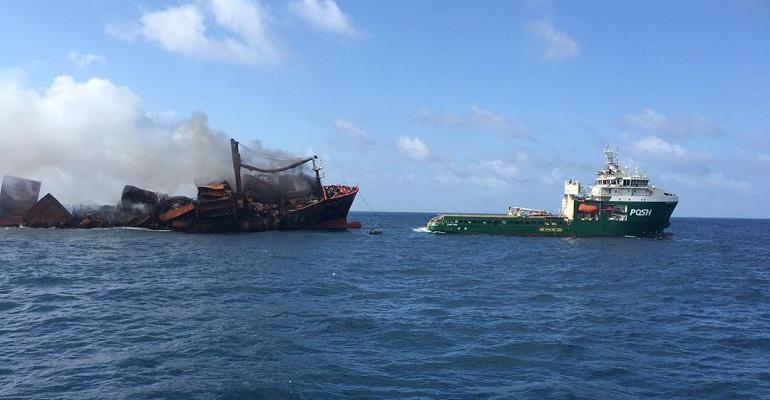There was increasing concern about undeclared dangerous goods causing death and mayhem in both ships and ports, while there was some evidence that the cavalier attitude to the need for accuracy about container weights was not improving. Meanwhile the fires were continuing and incidents like the huge chemical explosion in a stackyard in Chittagong clearly rang warning bells.
And yet, according to the TT Club, which has published a paper on this worrying subject, only five of the 179 IMO affiliates took the trouble to report on their inspections when the Carriage of Containers sub-committee met last September.
This begs a number of questions. Perhaps large numbers of regulators in the member states were inspecting container contents like mad, but just hadn’t got around to filing their results or compiling them into a report for IMO. Perhaps, as the world adjusted to the chaos and confusion of Covid and its aftermath on the liner schedules, there were more important matters requiring attention, like unblocking the logistic logjam and getting the boxes flowing again. Or, perhaps, amid this list of desperate priorities, nobody cared too much about the accuracy of manifests.
Lapse in surveillance
The TT Club has urged member states to consider this problem and to treat the inspection of containers and to report more assiduously about their efforts. One might suggest that the club has a shrewd idea that the proper surveillance of container contents is an area that has been permitted to lapse. Reports in the past – and one can recollect a survey undertaken in the United States - showed that an alarming percentage of inspected containers revealed misdeclarations and errors. There have been more recent, if smaller, surveys that fail to show any great improvement.
Peregrine Storrs-Fox, the TT Club’s Risk MD points out that the problem is wider than the cargoes that are covered by Dangerous Goods requirements and that there is a whole array of goods that have the potential to cause catastrophic incidents. So, there is an obligation to take these responsibilities more seriously.
Partnership between industry and authorities
Cargo inspections, from everyone’s point of view, are something of a nuisance, even though they are so very necessary. However, the “sampling” process is undertaken, it interferes with scheduling of handling and takes cost, time and labour. But as the club emphasises, there needs to be an active partnership between the industry and the enforcement authorities, which means that stevedores and terminal operators need to be fully on board with the process. Who remembers the aftermath of 9-11, with the demands in the United States that all inbound containers needed to be inspected? Eventually, the sheer impracticality of such a requirement did register, but it did take some time, before a less scatter-gun approach was adopted.
One might suspect that this is an area where pressure needs constantly to be applied, lest a lax attitude is permitted to develop. And there are certain areas in the world where there is genuine slackness that is automatically “exported” in the shape of mis-declared boxes wandering around the world.
Container lines levying fines
The lines, over the years, have been criticised for their unwillingness to take on their customers’ careless approach to the need for accurate declarations of weights and contents, despite the costs in terms of lost and damaged boxes and indeed, ships and their crews. At long last this is changing, with a growing number of lines prepared to levy fines when shippers have declared inaccurate weights. Some have also become more sophisticated in developing systems that can identify shipments which could potentially be more troublesome.
But if one of the purposes of IMO is to share the data about how important regulations are being implemented around the world, then reporting needs to become routine and the TT Club’s message needs to be taken on board.
Copyright © 2024. All rights reserved. Seatrade, a trading name of Informa Markets (UK) Limited.
Add Seatrade Maritime News to your Google News feed.  |

